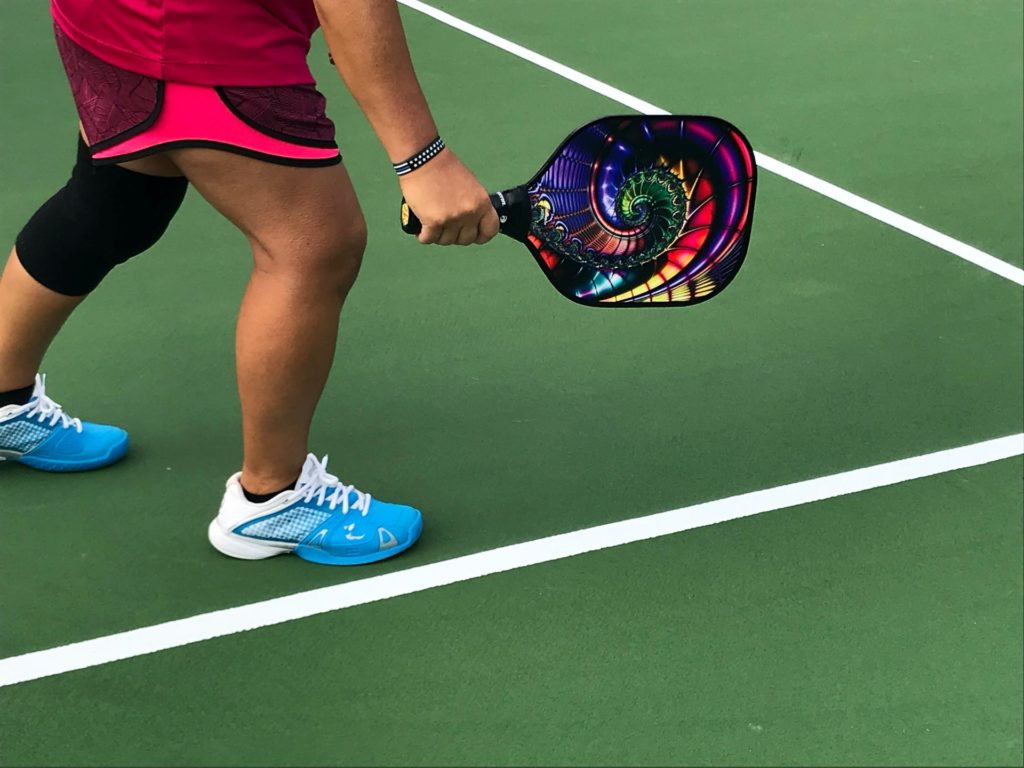Pickleball is one of the fastest-growing sports in America. Chances are, pickleball courts are popping up all over your town, most likely replacing a few tennis courts. Ever wonder why this sport has grown so quickly in popularity?
To start, pickleball can be played by people of all ages and all skill levels. You don’t have to be very good to participate in a game, and you will get better quickly. The courts are smaller than tennis courts, reducing the amount of running to the ball.
The game appeals to the masses. Everyone reading this article probably knows someone who has become obsessed with pickleball during the pandemic, and you’ve probably been invited to play a game once or twice.
In addition to being an all-around fun game, pickleball is good for your brain! Brain health research has consistently shown that exercise, social interaction, and brain stimulation are three of the most important lifestyle factors that can prevent dementia. Pickleball checks all these boxes. Here are some more reasons why you should just say yes to pickleball:
- Pickleball is good for your memory. First, aerobic exercise improves memory and prevents memory decline. Second, pickle ball requires new learning: remembering rules, keeping track of the score, and remembering the names of new people and pickleball lingo. Pickleball requires concentration and working memory (keeping track of information mentally), which are key components to learning new information. It also strengthens procedural memory (i.e., memory for movements). Every time you play pickleball, you boost the systems in your brain that support new learning and memory.
- Pickleball keeps you social. You can’t play pickleball by yourself. Whether playing doubles or with a foursome, this game will encourage you to interact with friends and meet new people. You will become part of a new community. You will feel less isolated. Even people who consider themselves introverts can enjoy participation in a shared activity that does not require too much chit-chat. Remaining socially active is a key factor in brain health and preventing or delaying the onset of dementia.
- Pickleball provides stimulation to your brain. The most important quality of an activity as it pertains to brain health is the degree to which it challenges your cognitive skills and requires active participation. Pickleball requires you to think and react quickly, make decisions, learn and apply new rules, and practice hand-eye coordination. No matter how many times you have played, you are provided with a novel and unpredictable scenario that will challenge your brain and your body every time that ball is served. Engaging in non-contact athletic activities that require motor coordination has been shown to prevent the onset and delay the progression of various types of dementia. In fact, non-contact boxing classes have been shown to reverse, reduce, and even delay the symptoms of Parkinson’s disease.
- Pickleball can boost your mood. Depression and other mood disorders are risk factors for dementia. Boosting your mood can have a ripple effect across your life and result in better memory, better sleep, improved motivation, and ultimately reduce the risk of dementia. Speaking from personal experience, every new person I play pickleball with leaves the court with a smile and says they had the most fun they’ve had in a long time.
It can be hard to try new things. Speaking from personal experience, I said no to pickleball at least ten times before I said yes. I was too busy, too nervous, and not coordinated enough. It turns out I wasn’t too busy, I played despite being nervous, and my coordination was good enough and improved over time. It is now a source of happiness in my life that I share with my husband, my kids, and my friends. I know that I am doing something good for my brain every time I get on the court.
Of course, it is important to talk to your doctor before playing pickleball to ensure you can participate safely. Play with proper shoes, never on wet courts, and talk to your doctor if you experience pain after playing.
Dr. Ashley Gorman is a board-certified neuropsychologist specializing in adolescents and adults. She works closely with patients, their families, medical providers, and/or academic institutions in order to assist in making an accurate diagnosis and formulating an appropriate treatment plan.







